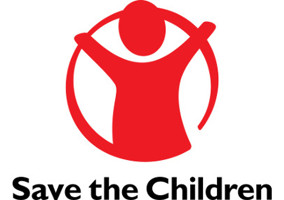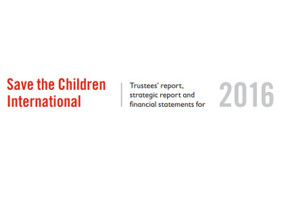Save the Children International employed more than 1,000 fewer staff in 2017, even though its income rose to a record level, according to its annual report and accounts, published last week.
In 2017 Save the Children International shrank its workforce by 6 per cent. The average number of full-time equivalent staff was 16,495, down from 17,528 in 2016.
A spokesperson for the charity said this drop was largely down to fixed-term contracts not being renewed as programmes ended.
Save the Children International is based in the UK, but accrues income from many different Save the Children subsidiaries around the world, and therefore accounts in US dollars. Income rose to $1.28bn (£989m), compared to $1.22bn (£939) in 2016.
In its latest accounts, the charity said unrestricted income was it fastest growing source of funding, and has led it to increase income projections for 2018.
It said the increase “was in part due to our fast growing markets, particularly in Europe, who have seen their investment in face-to-face fundraising, digital marketing and lead generation result in more supporters”.
Safeguarding
The number of child safeguarding incidents reported to the charity rose to its highest ever level of 210 in 2017, up from 193 in 2016.
Of the 210 incidents, 195 cases have now been closed and 15 are still being investigated.
Some 142 of these were incidents involving Save the Children or partner staff and 85 were proven to be child safeguarding violations.
For the 48 proven cases that involved Save the Children staff, 34 cases led to dismissals and 14 led to other remedial actions, such as formal warnings or trainings, while 11 were reported to the local authorities.
Regarding the 37 proven cases involving the charity’s partners, 27 resulted in dismissals and 10 in remedial actions.
Also during 2017, the charity received 31 allegations of sexual harassment and referred ten cases to authorities. Some 16 staff members were dismissed over reports of sexual harassment.
Helle Thorning-Schmidt, chief executive of the charity and former Danish Prime Minister, said in her foreword to the accounts that the charity take taken action to increase safeguarding controls following the scandals involving the aid sector in early 2018.
She said: “While we have commissioned a number of reviews to ensure our systems are set up to protect staff and the children we work with, this report highlights the work that we have already been doing to address these issues head on.
“Improving our internal controls has been embedded within our strategy for a number of years and in this report, we share the progress we have made on safeguarding children and reducing fraud.
“We are committed to working with others in the aid sector, donors and international institutions to stamp out abuse of any kind.”
CEO pay
Thorning-Schmidt was the highest paid employee on $299,136. This was lower than the combined $359,550 paid to Thorning-Schmidt and her predecessor in 2016.
Overall, members of the senior leadership team received $1.7m in 2017, compared to $1.6m the previous year.
|
Related articles











